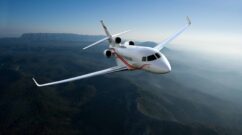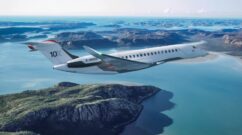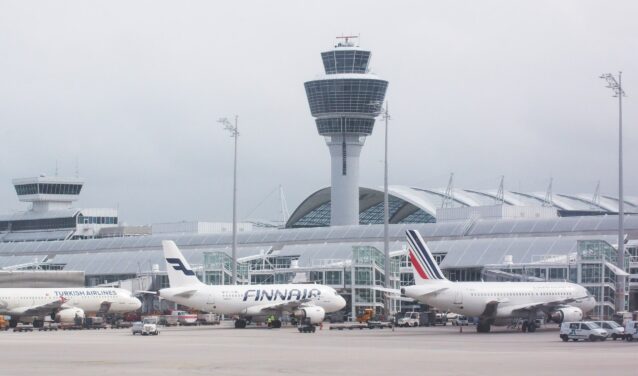In the aeronautical world, the general public usually know only about a few jobs: pilots, captains or stewards, flight crew members are usually the profession most of the people remember of. Yet, there is a job that people often do not know about, and that is essential to the passengers’ safety. Without the air traffic controller, no aircraft would ever land or take-off. But what does the air traffic controller really does? How to become an air traffic controller? What training do you need? What is the salary for this job? Find out everything you need to know about becoming an air traffic controller.
What is an air traffic controller ?
An air traffic controller controls and manages airspace traffic and all air movements at an airport from a control tower. As guarantor of good air traffic, his jobs consist in:
- managing and monitoring the trajectories of aircraft
- monitoring the airspace to avoid collisions between aircraft and helicopters
- giving slots and authorizations for take-off and landing
- providing information on weather conditions
- providing guidance, through radar guidance.
He/She is the link between the air and the ground and interacts with the pilot throughout the flight (from take-off to landing). He/She can communicate with the flight crew by radio. The air traffic controller issues flight permits for the area he controls.
As a guarantor of safety and the fluidity of air traffic, the air traffic control engineer leaves no room for error. He/She must have a high stress tolerance. Indeed, every decision taken have an impact on the lives of hundreds of passengers. He/She works with a colleague in a time zone, as the tower is always in operation.
There are two types of air traffic controllers: civil and military.
What is the training to become an air traffic controller ?
The conditions of admission to the competition :
To become an air traffic controller in the civil service, candidates need to pass the entrance exam for the INAC (air traffic control engineer). This competition exam is prepared after a baccalaureate during 2 years, either thanks to a preparatory class, or a BTS or a L2 (year 2 of a bachelor degree).
Admissions to the exam are very selective, with only a hundred or so places available each year. You have to be 26 years old or less and have language skills, especially in English. It is only possible to retake the exam three times.
The training :
The initial training of an air traffic control engineer (ICNA) lasts three years and takes place in Toulouse at ENAC (École Nationale d’Aviation Civile).
This training is both theoretical and practical. In addition to theory and practice, the training includes
- an 18-month internship
- training for a private pilot’s licence
- an 8-week stay in an English-speaking country
- an internship in an airline company.
The student is paid throughout the course.
The course leads to a Master in Air Traffic Management and Control (MCTA). Once the ICNA training is completed, the student will join the DGAC (Direction de l’Aviation Civile) and will ensure the smooth flow of traffic in the French sky from a control centre.
What is the salary of an air traffic controller ?
Salary of a civil air traffic controller :
The total monthly income of an air traffic controller at the beginning of his or her career is approximately €4,916.
Salary of an air traffic controller in the Army :
The average monthly salary of an air traffic controller for the air force is :
- €1,329 net for a non-commissioned officer
- €1,471 net for a sergeant
- €1,763 after 10 years of service
When the air traffic controller is subject to external operations, the remuneration is multiplied by 2.5. Allowances may be added to this basic salary depending on the family situation and location.
What is the career development of an air traffic controller ?
Career development in civilian life :
Through the internal selection process, air traffic controllers can move into research, supervision or management of civil aviation services (depending on his years of experience).
Career development in the military :
In the military, the possibility of career development is through ranks. At each rank, responsibilities and remuneration can change.Air traffic controllers are crucial to the smooth running of air traffic. Passionate and rigorous, their job requires attention and expertise. Passengers owe them safety and the smooth running of their journey.






